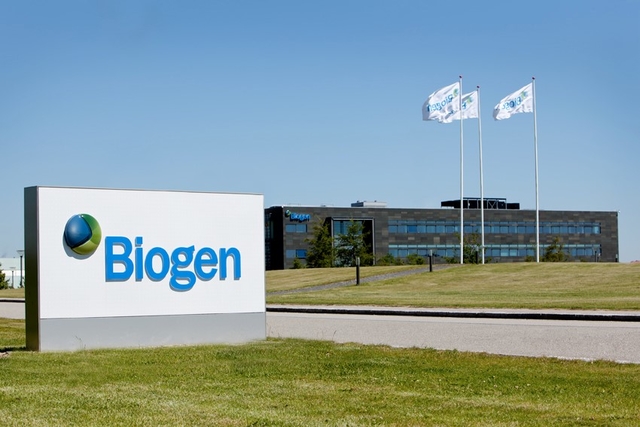Biogen taps Envisagenics' AI to speed up RNA splicing R&D

Biogen has made a further push into RNA-based drug discovery via a collaboration with Envisagenics, which applies artificial intelligence RNA sequencing data to discover new drug targets and therapeutics.
Cambridge, Massachusetts-based Envisagenics focuses on using AI to analyse errors in RNA splicing, a process in which a precursor form of messenger RNA (mRNA) – which is used as a template for protein synthesis in cells – is transformed into a mature form.
As its name suggests, splicing involves snipping out certain sequences in the RNA called introns, with the remaining sequences (exons) reconnected to one another to form the functional molecule. At least 370 genetic disorders are known to derive from errors introduced during this splicing process.
Biogen has been involved in RNA splicing research since its earliest days, and has deep expertise in the traditional, lab-based techniques for detecting, cataloguing and interpreting RNA splicing errors, according to R&D head Alfred Sandrock.
The company's $2 billion-a-year medicine for the neurological disorder spinal muscular atrophy (SMA) – Spinraza (nusinersen) – is one result of that effort. The antisense oligonucleotide works by modulating alternative splicing of the SMN2 exon which is mutated in the disease.
This is however "laborious, slow and costly", according to the biopharma. Layering in Envisagenics' AI and machine learning algorithms and computing power means it may now be able to "identify, test and validate splicing errors at scale".
Envisagenics has developed a database of around seven million RNA splicing errors – claimed to be the largest in the world – that can be interrogated using the AI to link errors to diseases and design therapeutic compounds to correct them.
The thrust of the alliance is directed straight at central nervous system (CNS) disorders – Biogen's core therapeutic focus – and the initial objective is to understand how different forms of RNA are regulated in CNS cell types.
It's not the first partnership for Biogen in the RNA splicing area. In 2019, the biopharma teamed up with Skyhawk Therapeutics to try to find small-molecule drugs that could modulate RNA splicing, focusing on candidates for neurological disorders like multiple sclerosis and SMA.
Biogen meanwhile is also pursuing other avenues of RNA drug discovery and development, and in 2018 expanded the partnership with Ionis Pharma which delivered Spinraza to the market, paying $350 million upfront for a new 10-year alliance.
Last year, it also provided investment funding and a licensing deal to RNA interference start-up Atalanta Therapeutics, focusing on developing therapies for Huntington's disease and other unnamed CNS diseases.













